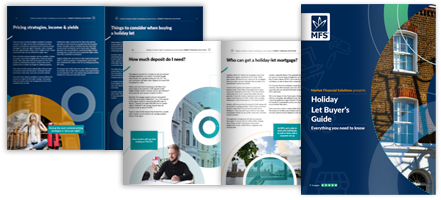
Written by Scott Lord
Deputy Chief Mortgage & Operations Officer – Front End
Market Financial Solutions are a bridging loan and buy-to-let mortgage provider and are not legal, financial, investment or tax advisers. This document is for informational purposes only and does not, and should not be considered, to constitute legal, financial, investment or tax advice or be relied upon by any person to make a legal, financial, investment or tax decision. Therefore, Investors are encouraged to seek appropriate professional advice. The information in this content is correct at time of writing.

Last year, data showed that the market size of the UK’s hotel industry grew by more than £5 billion. It reached an approximate value of £16.42 billion. Meanwhile, monthly occupancy rates reached 81% in September 2022 – up from 72% and 47% in 2021 and 2020 respectively.
Despite not quite returning to pre-Covid levels, the hotel industry has enjoyed positive growth in the aftermath of the pandemic. The forecasts indicate the industry could grow by another £3 billion in 2023.
As such, with residential and commercial property prices softening, some investors may be considering a foray into the hospitality sector to seek out new opportunities. However, as with any property investment, it is vital that you get professional advice before taking the plunge. You also need ensure you have the right hotel financing in place to make it happen.
Source: Statista
Is hotel investment worth it?
Before outlining how to best go about hotel financing, let us explore whether making a hotel investment is worth it. From increasing the diversity of your property portfolio, to providing stable cashflow, there could be multiple benefits to owning a hotel.
When assessing the feasibility of a hotel investment, the key metrics that investors should be aware of are occupancy rates, average daily rates, and revenue per available room.
On these three metrics, the UK hotel industry ended 2022 on a positive note. Furthermore, room rates were rising towards the end of the year. Indeed, average daily rates in the UK in December 2022 were 22% higher than the same period in 2019. Hotels in London enjoyed growth of 30% on pre-pandemic levels.
However, with inflation raising operating costs, revenue per room did fall slightly from £103.41 in November 2022 to £96.27 the following month. This meant that gross operating profits suffered a fall of just over 3% month-on-month.
However, the industry showed resilience compared to the three years prior. In 2019, for example, revenue per room was almost 10% lower than in 2022 at £87.70.
Therefore, even in the face of inflation and rising interest rates, the industry still managed to record growth on pre-pandemic levels.
With this resilience in mind, forecasts for 2023 are relatively positive. With events like the coronation and Eurovision occurring this year, domestic tourism is likely to have received a lift. This should bode well for the hotel industry’s £3 billion growth valuation.
In London alone, estimates suggest that revenue will reach between 101% and 105% of pre-pandemic levels by the end of this year. Across the UK, nominal average daily rates are set to rise by 4.2%.
Revenue and profits could be maintained in the final months of 2023 and beyond as the economic climate improves.
What to do before securing hotel financing
Once you have decided to invest in a hotel, there are a few important things to do.
Firstly, it is vital to speak with a qualified financial advisor to ensure that a hotel meets your investment goals.
Secondly, pick a good location. For instance, London enjoys a much higher occupancy rate and average revenue per room than much of the rest of the UK.
Identifying areas that have the greatest potential for growth or profit would be beneficial. This could be a major city like London. But it could also be near the coast or an area of natural beauty. It all depends on the clientele or guests you’re aiming to attract.
Thirdly, it is important to draw up a business plan, which clearly lays out a roadmap for your hotel project. This should include everything from your goals and target market, to the products and additional services you plan to provide your guests with.
Marketing strategies should also be included in this plan, as well as the financial projections for your hotel investment. This will help you plan and manage your investment effectively. Additionally, it will also keep you focused on how you will achieve success.
Carrying out research on competitors is another important aspect of a hotel business plan, as it can help you spot a gap in the market, or cater for groups of people who may not be being adequately served by other hotels. This will also inform your marketing strategies and pricing.
Your business plan should detail the necessary insurance and permits that your hotel investment will require, as well as the taxes and outgoing costs that could impact the profitability of your investment. To ensure you can meet all the costs involved, you must ensure that you have the right equity and finance in place for the investment you have in mind.

How hotel financing can be used
Not all hotel investments look the same. It is important to work with a broker and a lender who can help you secure the best financial products for your needs.
1. Refinancing your existing hotel
For example, you may already own a hotel, but wish to refinance in order to replace an existing loan or mortgage with a new financial product. Therefore, funding that will help you pay off any outstanding debt that you have, or clear up existing obligations, may allow you to release new funds.
2. Renovating your existing hotel
Alternatively, you may also need capital to renovate a hotel aready owned or convert an existing building into a hotel. By taking on a loan to finance these renovations or conversions, you could spread the upfront cost, potentially reducing the impact of the investment on your cashflow or profit margins.
3. Acquiring a new hotel
For new investors, you may need hotel financing to acquire a hotel – either on the regular market, at an auction, or via other means. In all cases, these investments will require significant upfront investment, and you may need short-term capital to be delivered at pace before securing a longer-term financial product further down the line. Again, your broker should be able to help with the correct product for your circumstances.
Types of hotel financing available
As with many property investments, there are a variety of options that investors have when looking for hotel financing. The most obvious option would be a mainstream bank, who can provide vanilla, small- and large-scale hotel loans.
Another option is to take on a commercial mortgage, which tend to be provided by specialist lenders. In rare cases, you might find that the government may aid you with your project. Usually a Startup Loan that can give your project a boost of up to £25,000.
Alternatively, if your project is particularly unique, is being created for an important mission (such as boosting sustainability in the hotel industry), or will be used as a vehicle for charity, you might be able to access funding through crowdfunding.
Finally, if you need a quick injection of capital, a hotel bridging loan may be an option. Generally, these are used to bridge the gap between the purchase of a new property and the acquisition of a longer-term financial product. But they could also be used to refinance a property or carry out renovations as well.
For information about our bridging loans, head to our website.
Source: Gov.uk
How do borrowers qualify for hotel financing?
Qualifying for hotel financing depends on where you acquire your loan or mortgage. Generally, if you are applying for a loan from a bank, there will likely be strict lending criteria that you and your project will need to adhere to.
Indeed, with a tick-box approach to lending, banks will assess your credit history and your existing debt-to-income ratio, meaning you may be rejected for a loan if you do not fit their strict criteria.
Your business plan will also play an important role in their evaluations. As will the value of your hotel asset – which they will assess to determine the loan-to-value (LTV) ratio.
With this in mind, some hotel investors may struggle to find the flexibility they need on the high street. Further, banks’ mortgage application processes could leave you waiting for some time before the loan is delivered.
Specialist lenders, on the other hand, take a much more bespoke approach to lending. At Market Financial Solutions, for example, we underwrite our loans from day one, allowing us to account for a borrower’s entire financial situation and a project’s potential income or revenue.
As such, we can provide finance for those with adverse credit, CCJs, complex company structures, or undervalued properties, as well as borrowers who may be making their first venture into the hotel investment world.
With a 17-year track record in providing large bridging loans, we can turn enquiries into bridging loans within as little as three days, allowing you to move quickly with your investment plans.
Finally, when we say “yes”, we mean it. Plus, as we present all our charges upfront, you can be sure there are no hidden fees.
For more information for how we can help you with your hotel financing needs, explore our bridging loan range.
The Complete Guide to
Holiday Lets
Everything you need to know
- What to consider
- Costs, pricing, income
- Rules & regulations
- Finance options





